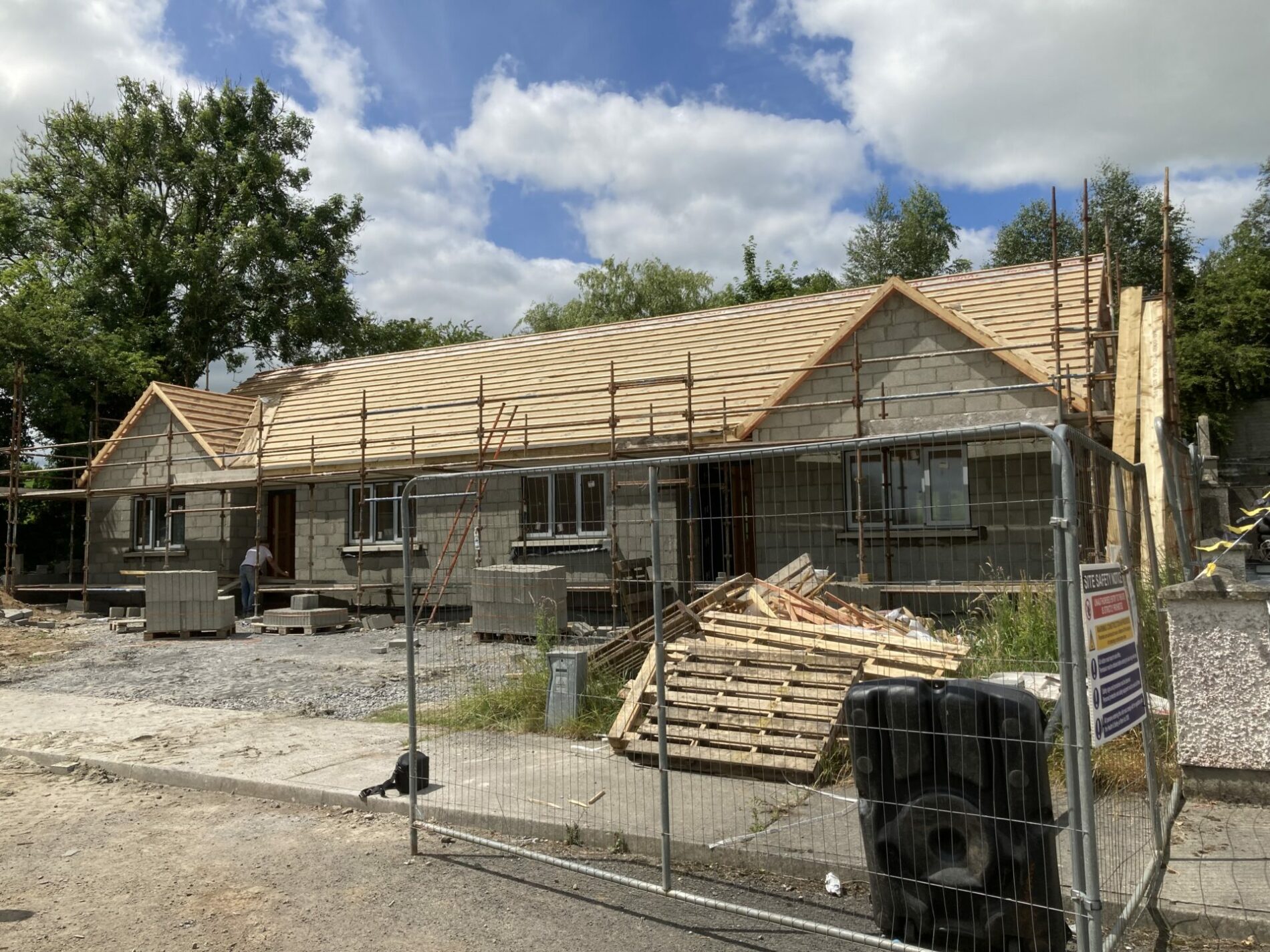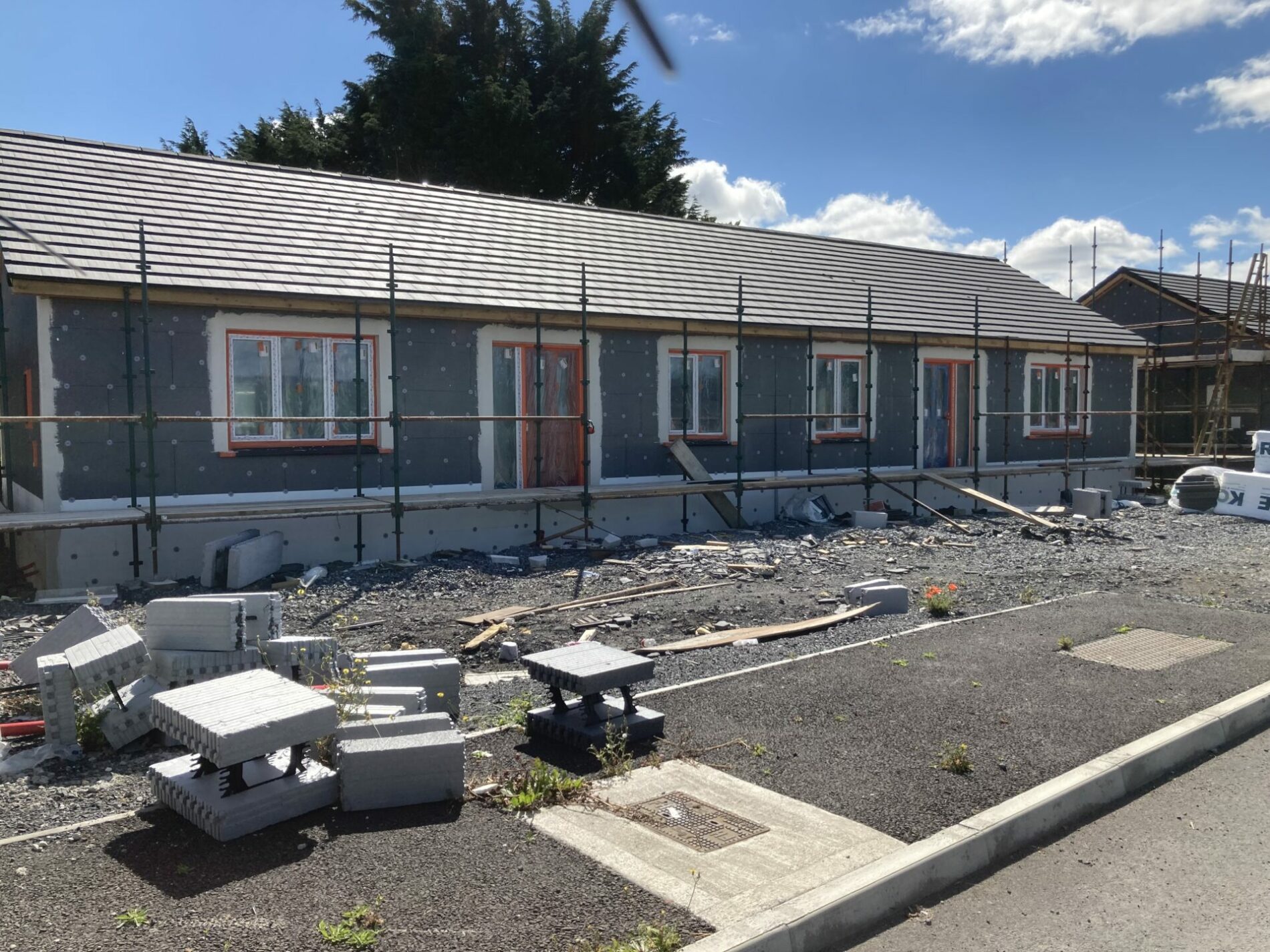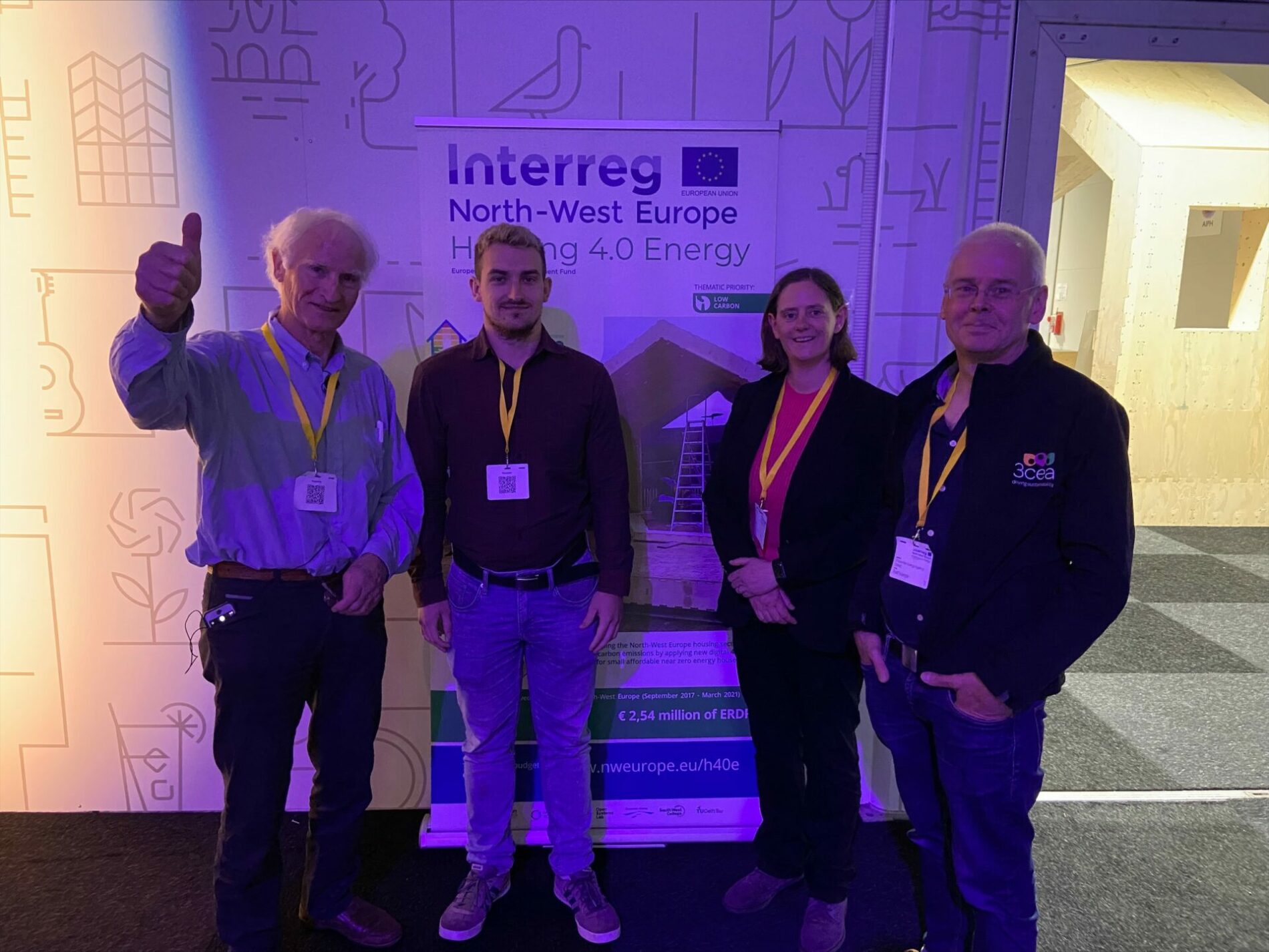IGBChats Housing 4.0 Energy
EU Communications Officer Colin Healy recently spoke with the Irish Green Building Council (IGBC) for their IGBChats Housing 4.0 Energy issue. The Irish Green Building Council is a non-profit organisation that was launched in 2011 with organisations and businesses from the entire value chain of the built environment. All are united in one common goal to accelerate the transformation of the built environment, related industry and supply chain to one that is sustainable through leadership, research, education, and providing policy input to national and local government.
Colin, 3cea is a partner in the Housing 4.0 Energy project, could you tell us a bit more about it and its objectives?

Housing 4.0 Energy aims to develop a market for small, affordable near-zero energy homes (NZEHs) by adapting and applying new digital technologies. This project is funded by the European Regional Development Fund (ERDF) and is made up of five partner countries in Northwest Europe (NWE). These are Germany (Europäisches Institut für Innovation – Technologie e. V. & Thoma Holz GmbH), Netherlands (Gemeente Almere & TU Delft), Ireland (3cea), United Kingdom (South West College & Open Systems Lab) and Belgium (Kamp C).
The main goal of Interreg Northwest Europe Housing 4.0 Energy, is to offer people in NWE access to new affordable near-zero energy/low carbon homes (NZEHs) and zero-energy/low carbon homes (ZEHs), effectively aiming to reduce home building costs by 25% and carbon emissions by 60%.
H4.0E project will facilitate the uptake of low carbon and digital technologies, products, processes, and services in the NWE housing sector to reduce carbon emissions and improve the quality of life for homeowners in the region and beyond.
What defines a Housing 4.0E house and where can we find these?
A H4.0E house is a NZEB or ZEB house built with a Design for Manufacture and Assembly (DfMA) model. The construction of H4.0E houses seeks to reduce the embodied carbon and cost of house construction by using low carbon materials and the DfMA model. The pilots built in Ireland for the testbeds are not built with the DfMA model but that would be the expectation for further replication, using the online platform also being developed by the project.
These 48 units are spread across four regions and six H4.0E pilots which include
- Gemeente Almere (Almere, Netherlands): WikiHouses in urban areas, demonstrating digitised (4.0) self-building
- Province Flemish Brabant (Flemish Brabant, Belgium): NZEH/ZEH prefabricated timber frame container units including variable living layout designs in rural areas to be let to candidates on the waiting list of the local social letting agency
- Thoma Wood 100 (Lahr), Germany): Prototype development of prefabricated Dowel Laminated Timber (DLT) elements for multiple NZEH/ZEH social housing apartment blocks
- 3CEA (Carlow & Kilkenny, Ireland): NZEH/ZEH units for low-income groups in rural areas & monitoring user behaviour

All pilots feed data into the main output: the H4.0E Energy Building Technology that enables zero energy/emission housing building on a larger scale. Although 48 units were planned in the original application for H4.0E, this has since been revised to 30. Almere has 18, 3cea will have 8 upon completion, Kamp C has 3 and Thoma has one prototype house.
Specifically in the Irish context, there are 2 semi-detached, 2-bedroom, bungalow housing with 4 units in Carlow (15 – 18 St. Mary’s Court, Carlow Town, Co. Carlow). In Kilkenny, there is 1 semi-detached, 2-bedroom, bungalow housing with 2 units in Mullinavat (Buckstown, Inchacarron, Mullinavat, Co. Kilkenny) and 2, 1-bedroom, apartment-sized housing units in Graiguenamanagh (Old Fire Station, High Street, Graiguenamanagh). All these housing units will belong to the County Councils and be used as social housing. These are NZEB buildings with different pre-BER energy ratings (the objective BER rating of the finished build). These builds have about a 30 – 60% reduction in embodied carbon compared to a standard (standard concrete brick) build. Every unit will also be equipped with 2kPV and run with heat pumps.
There are several benefits associated with a H4.0E house that both feed into their lower carbon nature, and come as a result of. For example, through the use of 2kW PV panels on the roof, each house will have a lower energy consumption, leading to lower energy bills.
- The Graiguenamanagh and Carlow units have achieved a pre-BER of A1 (<25 kWh/m2/annum)
- Mullinavat has achieved a pre-BER of A3 (<50kWh/m2/y) but still holds an embodied Carbon reduction compared to standard builds.
These houses are also warmer thanks to an increased airtightness and a high insulation standard in the walls and windows. Finally, in the long run (with the help of the platform) these houses are expected to be cheaper to build with a potential saving of 25% compared to standard builds.
You’ve mentioned a digital platform being developed as part of the project. Can you discuss this and other project deliverables?
One of the key long-term goals of the Housing 4.0E project is to ensure the replicability of its practices and principles beyond the project’s end date. Open Systems Lab joined the H4.0E project as a contractor and has been tasked with generating an exploratory digital platform to allow for the development of NZEB and ZEB houses. The digital platform aims to explore how we can use the world wide web to make it easier for developers, municipalities, and communities to replicate manufactured housing solutions like the ones being piloted by the Housing 4.0E project. It allows future developers and even laypeople to design homes using the H4.0E principles, based on a menu of modules listed by regional manufacturers. It will allow users to instantaneously see the estimated impact of their design decisions on cost, carbon, and energy use. The aim is probably obvious: to give users the information they need to make informed design choices and factor in the long-term cost savings of up-front investment in good energy performance.

As part of the long-term goals and replication of the project, H4.0E looks to take on ambassadors that will act as spokespersons for the principles and practices of the project both in their professional and personal lives. These ambassadors can come from technical or non-technical backgrounds, for example, architects or a member of a housing board. Marion Jammet of the Irish Green Building Council is one such ambassador and joined the project through 3cea back in 2021.
To ensure to the longevity and propagation of the H4.0E project, we will also develop a Guidebook for future users and stakeholders. This Guidebook will act as a synopsis of the project as a whole while also directing the reader to specific information should they need deeper knowledge from the partners.
Finally, 3cea in cooperation with South West College (SWC) has to create and deliver training material and establish and facilitate Training sessions. These training sessions are important as they will educate future users/proprietors of the H4.0E practices and principles on how to effectively use them. The Construction Workshop was the first training session and was hosted in May 2021. This aimed to teach individuals in the construction industry how to use the H4.0E practices in construction and material selection. Most recently we built on this with our H4.0E Workshop Series, a full series of webinars covering in detail the H4.0E project and principles. One of these workshops was the Platform Workshop which taught individuals how to use the digital platform being developed by Open Systems Lab (OSL). Finally, the End-User Workshop will be aimed at the people moving into H4.0E houses and will teach them about how their house works and how to effectively use a H4.0E house.

3cea Team & Duncan Stewart (Architect and TV Producer) at H4.0E 1 final conference in Almere in May 2022
Thank you to the Irish Green Building Council for showing an interest in the project and producing the IGBChats Housing 4.0 Energy issue. If you would like to know more about H4.0E or would like to be involved in some capacity please contact our project officer at rkampe@3cea.ie or comms officer chealy@3cea.ie or you can check out our Housing 4.0E webpage here.

















